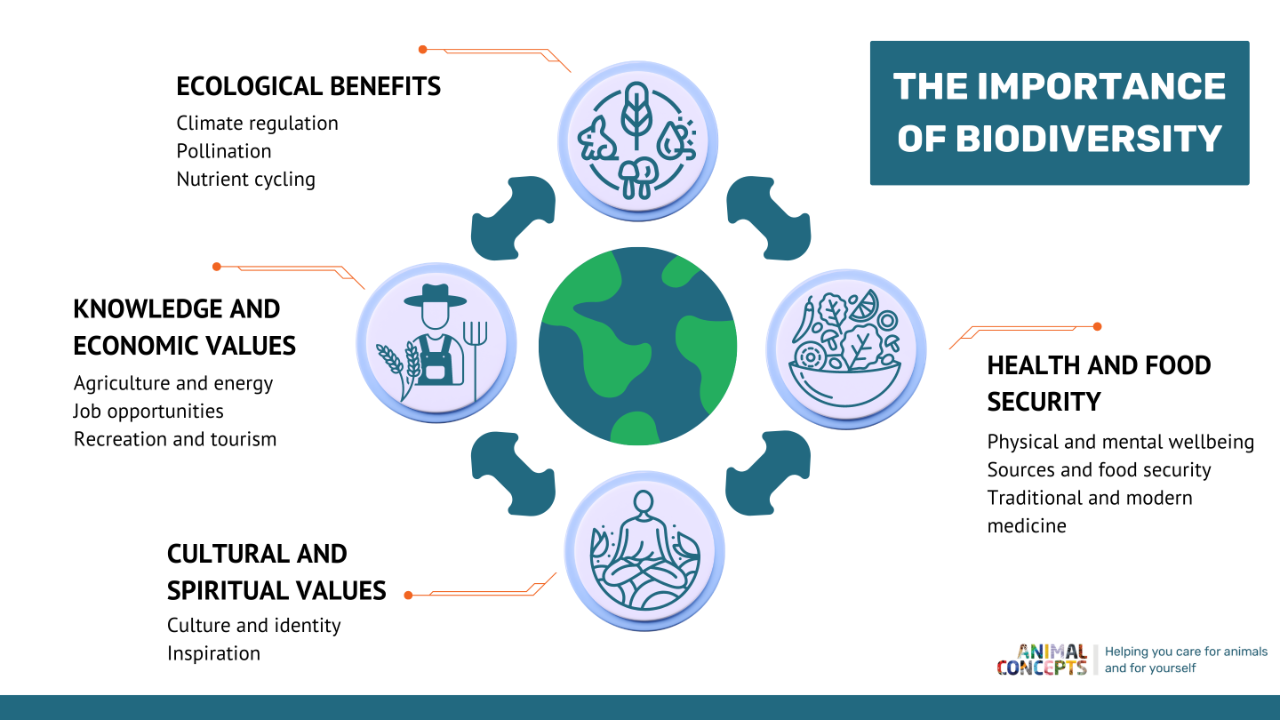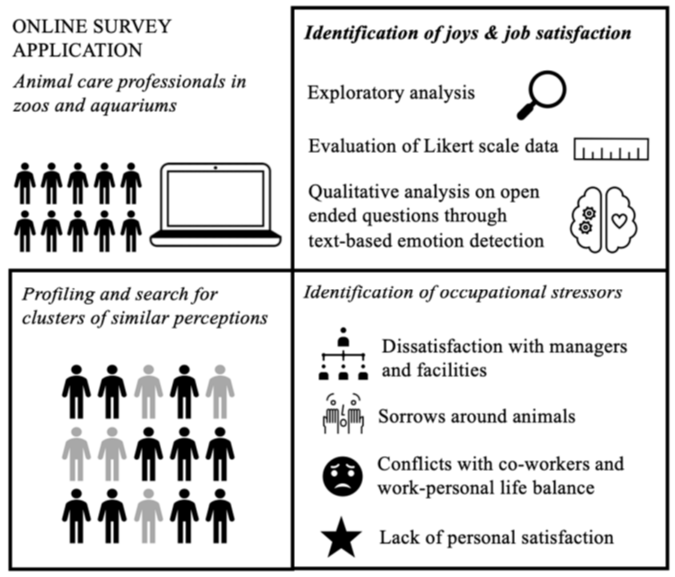New paper on human wellbeing in zoos and aquariums


A new paper resulting from a collaboration between AnimalConcepts, the University Federal de Minas Gerais in Brazil, and the University of California in the USA is now available. The open-access article can be downloaded below.
The present study aimed to identify common joys and stressors experienced by zoo professionals working in a variety of roles ranging from junior animal care staff to curators. While many of those who care for non-human animals professionally identify their work to be purposeful, meaningful, and intrinsic to their calling and values, there can be downfalls to their chosen careers. Through a survey of 311 zoo and aquarium professionals, the present study identified common themes about their lack of ability to feel empowered to do their best for animal welfare. We identified a link between staff welfare and perceptions of animal welfare, highlighting areas that organisations can target to improve the ability of their staff to care for animals by taking better care of their people by reducing stressors.
Click HERE for the PDF.

The importance of biodiversity

Last month we introduced the importance of the interconnection among all organisms within an ecosystem. The diversity of organisms is key to maintaining the capacity of the ecosystem to function, survive, and thrive. Biodiversity is essential for the health and stability of the planet, and its importance can be understood from various classically portrayed example and perspectives, as the figure above illustrates:
- Ecological benefits: Each species has a unique role and contributes to the functioning of the ecosystem, such as nutrient cycling, pollination, seed dispersal, and reducing overpopulation. A diverse range of species ensures that ecosystems are resilient and can withstand environmental changes and disturbances. Forests, wetlands, and other ecosystems help regulate climate by absorbing carbon dioxide and releasing oxygen. They also help in purifying water, preventing soil erosion, and mitigating natural disasters like floods and droughts. This is not only important for the human animal, but also for many other living beings such as other animals, plants, and fungi among others.
- Health and food security: Loss of biodiversity in agriculture can lead to reduced resilience, increased vulnerability to undesired, and reduced food production, also in the plant-based approach. Biodiversity also contributes to the development of medicines, as many drugs are derived from plants and other organisms which supports wellbeing of all kinds of animals and plants.
- Knowledge and economic value: Biodiversity is a significant source of economic value and livelihoods for many communities around the world. It can support agriculture, forestry, fisheries, and tourism, providing employment and income opportunities but must be done responsibly and caringly. Protecting and sustainably managing biodiversity can maintain a healthy economy without necessary and continuous growth, contribute to poverty reduction, and overall societal wellbeing.
- Cultural and spiritual values: the planet’s diverse ecosystems and landscapes have intrinsic value and should be protected and conserved in their own right. Humans can also enjoy nature in a variety of ways, through responsible and respectful tourism, outdoor activities, or simply appreciating the wonders of nature and sauntering. Biodiversity also holds cultural and spiritual significance for indigenous peoples and local communities, who often have deep connections and traditional knowledge associated with their local ecosystems. These profound connections should be considered and reflected on by those who are not growing up with these first-hand teachings often rooted in interconnectedness.
Overall, biodiversity is crucial for the sustainable functioning of ecosystems, the provision of essential services, human wellbeing, economic prosperity, and the preservation of nature for all who we share this planet with. Recognising its importance and taking active steps to conserve and protect biodiversity is essential for ensuring a healthy and flourishing planet for current and future generations.
Our thinking about other animals, our responsibility toward the planet we share, other peoples and the greater community of life has changed a lot over the years at AnimalConcepts and we will continue to evolve, expanding our circle of compassion, taking clear stances which will flow in the ways we behave and show up as a company and team, more to come!

